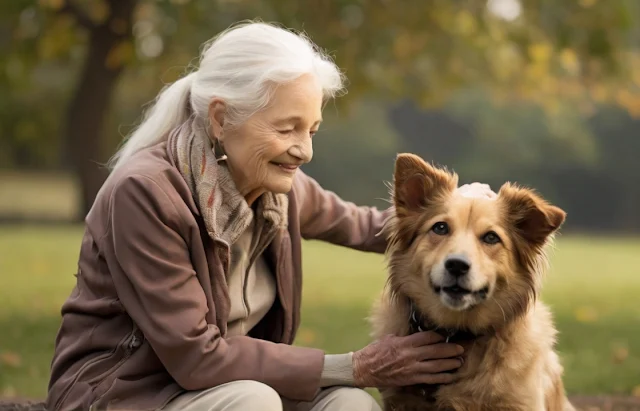In the realm of pet care, understanding and responding to the unique behavioral traits of elderly dogs is pivotal for providing tailored and compassionate support. This extensive guide explores the intricacies of interacting with aging canine behavior, shedding light on the distinctive care requirements that contribute to a fulfilling and enriched life for senior dogs.
Understanding Aging Canine Behavior
As dogs age, their behavior undergoes changes influenced by a variety of factors. This section delves into the nuances of aging canine behavior and the key elements that necessitate special care.
Physical Changes
Senior dogs often experience physical changes such as decreased mobility, vision and hearing impairment, and joint issues. Recognizing these changes is vital for adapting their living environment and activities to ensure comfort and well-being.
Cognitive Decline
Cognitive decline, akin to dementia in humans, can affect elderly dogs. Symptoms may include disorientation, altered sleep patterns, and changes in social interactions. Implementing strategies to stimulate their minds and provide a sense of security becomes paramount.
Tailoring Nutrition for Senior Dogs
Aging dogs have distinct nutritional needs, and adapting their diet is essential for maintaining health and vitality.
Specialized Senior Dog Food
Transitioning to senior-specific dog food addresses the nutritional requirements of aging dogs. These formulations typically include ingredients promoting joint health, cognitive function, and overall well-being.
Monitoring Weight
Weight management becomes crucial for senior dogs, as obesity exacerbates age-related issues. Regular monitoring and adjusting portion sizes ensure an appropriate weight, mitigating potential health concerns.
Promoting Physical Well-being
Maintaining the physical health of aging dogs involves a combination of exercise, grooming, and preventive care.
Gentle Exercise Routines
Tailoring exercise routines to accommodate reduced mobility is key. Gentle walks, low-impact activities, and physical therapy exercises can enhance flexibility and slow the progression of age-related conditions.
Regular Grooming
As dogs age, they may require more frequent grooming, especially for breeds prone to coat matting or skin issues. Regular brushing, dental care, and nail trims contribute to their overall well-being.
Addressing Cognitive Changes
Cognitive decline in aging dogs necessitates specific strategies to support mental health and engagement.
Cognitive Enrichment Toys
Incorporating cognitive enrichment toys stimulates a senior dog's mind, preventing boredom and encouraging problem-solving. Puzzle feeders and interactive games engage their cognitive faculties.
Establishing Routine
Consistency in routine provides a sense of security for aging dogs experiencing cognitive decline. Establishing a predictable schedule for meals, walks, and playtime fosters a stable environment.
Creating a Comfortable Environment
Adapting the living environment to cater to the specific needs of senior dogs enhances their quality of life.
Orthopedic Bedding
Investing in orthopedic bedding provides support for aging joints and enhances overall comfort during rest. Elevated beds reduce pressure on achy joints, promoting better sleep.
Easy Access to Essential Areas
Modifying the living space to ensure easy access to essential areas like food bowls, water, and comfortable resting spots is essential. Ramps and non-slip surfaces aid mobility.
Regular Veterinary Check-ups
Frequent veterinary check-ups are crucial for early detection of age-related issues and prompt intervention.
Geriatric Health Screenings
Implementing geriatric health screenings allows veterinarians to assess organ function, detect potential illnesses, and tailor a care plan specific to the individual needs of senior dogs.
Pain Management
Managing chronic pain associated with aging is vital. Veterinarians may recommend medications, supplements, or alternative therapies to enhance the quality of life for senior dogs.
Conclusion
In navigating the intricate landscape of interacting with aging canine behavior, a holistic approach encompassing tailored nutrition, physical well-being, cognitive stimulation, environmental adjustments, and regular veterinary care ensures a fulfilling and comfortable life for senior dogs. By understanding and addressing their unique needs, pet owners can forge enduring bonds and provide their aging companions with the care and attention they deserve.


